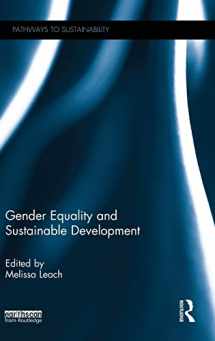
Gender Equality and Sustainable Development (Pathways to Sustainability)
Book details
Summary
Description
For pathways to be truly sustainable and advance gender equality and the rights and capabilities of women and girls, those whose lives and well-being are at stake must be involved in leading the way.
Gender Equality and Sustainable Development calls for policies, investments and initiatives in sustainable development that recognize women’s knowledge, agency and decision-making as fundamental. Four key sets of issues - work and industrial production; population and reproduction; food and agriculture, and water, sanitation and energy provide focal lenses through which these challenges are considered. Perspectives from new feminist political ecology and economy are integrated, alongside issues of rights, relations and power. The book untangles the complex interactions between different dimensions of gender relations and of sustainability, and explores how policy and activism can build synergies between them. Finally, this book demonstrates how plural pathways are possible; underpinned by different narratives about gender and sustainability, and how the choices between these are ultimately political.
This timely book will be of great interest to students, scholars, practitioners and policy makers working on gender, sustainable development, development studies and ecological economics.


We would LOVE it if you could help us and other readers by reviewing the book
Book review



